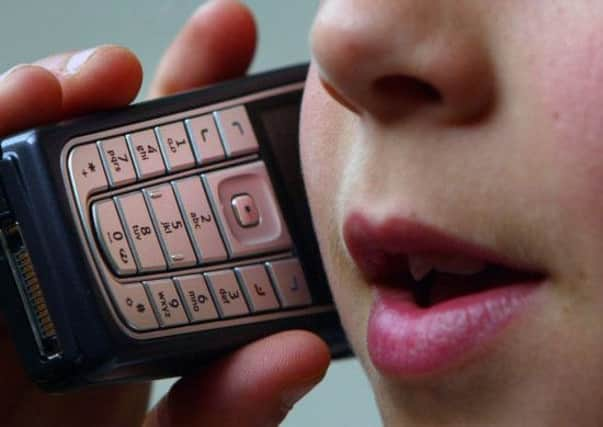Study to test mobiles’ effect on our children


The Study of Cognition, Adolescents and Mobile Phones (Scamp) will focus on mental functions such as memory and attention which continue to develop into the teenage years.
About 2,500 school children will be tested at age 11 and 12 and undergo a further assessment two years later. Most children start to own a mobile phone at around 11 or 12.
Advertisement
Hide AdAdvertisement
Hide AdWhile there is no convincing evidence that mobile phones effect adult health, experts believe children may be more vulnerable due to their developing nervous systems and thinner skulls, which absorb higher levels of radio energy.
More than 160 secondary schools in the outer London area were today receiving invitations to enrol pupils into the study.
Professor Patrick Haggard, deputy director of the Institute of Cognitive Neuroscience at University College London and chairman of the Scamp steering committee, said: “I am delighted that the UK is contributing to this high priority research with the launch of Scamp, the largest follow-up study of its kind in adolescents worldwide.
“This study has two particularly valuable aspects: it attempts to estimate the children’s exposure to radio frequency fields as precisely as possible, and it uses a carefully-designed suite of tests to measure many of the key cognitive functions that are developing during adolescence.”
Advertisement
Hide AdAdvertisement
Hide AdAn estimated 70 per cent of 11 to 12-year-olds in the UK now own a mobile phone, rising to 90 per cent by age 14.
The World Health Organisation has ranked forward-looking studies of the effects of mobile phones on children and adolescents as a “highest priority research need”.
UK health guidelines say children under 16 should be encouraged only to use mobile phones for essential calls, and where possible use a hands-free kit or to send text messages. When they have to make calls, they are advised to keep them short.
Scamp’s principal investigator Dr Mireille Toledano, from Imperial College London, said: “This advice to parents is based on the precautionary principle, given in the absence of available evidence and not because we have evidence of any harmful effects.
Advertisement
Hide AdAdvertisement
Hide Ad“As mobile phones are a new and widespread technology central to our lives, carrying out the Scamp study is important in order to provide the evidence base with which to inform policy and through which parents and their children can make informed life choices.
“By assessing the children in year seven and again in year nine we will be able to see how their cognitive abilities develop in relation to changing use of mobile phones and other wireless technologies.”
Another study, Cosmos, which has a UK arm funded by the Department of Health, is investigating the possible long-term health effects of mobile phones on 290,000 adults over 20 to 30 years. To date, there are only two studies, both in Europe, focusing on childhood cancers and mobile phone use. One has reported no association and the other is ongoing.
Dr Toledano said: “Scamp will compliment this other research by focusing on the ongoing development of cognitive functions in the brain during adolescence.
Advertisement
Hide AdAdvertisement
Hide Ad“Cognition is essentially how we think; how we make decisions; and how we process and recall information. It is linked to intelligence and educational achievement and forms the building blocks of the innovative and creative potential of every individual and therefore society as a whole.”
Children volunteering for the study will undertake classroom-based computerised tasks designed to measure cognitive abilities that underpin functions such as memory and attention. Together with their parents, they will also answer questions about their use of mobile phones and other devices, well-being and lifestyle.
Dr Toledano added: “Taking part in Scamp is a fantastic opportunity for schools to bring ‘live’ science into their classrooms, show children how we conduct health research and, above all, for schools, pupils and parents to make a real contribution to the health of current and future generations.”
The study was commissioned by the Department of Health through the Research Initiative on Health and Mobile Telecommunications, which is funded jointly by the Government and mobile phone operators.